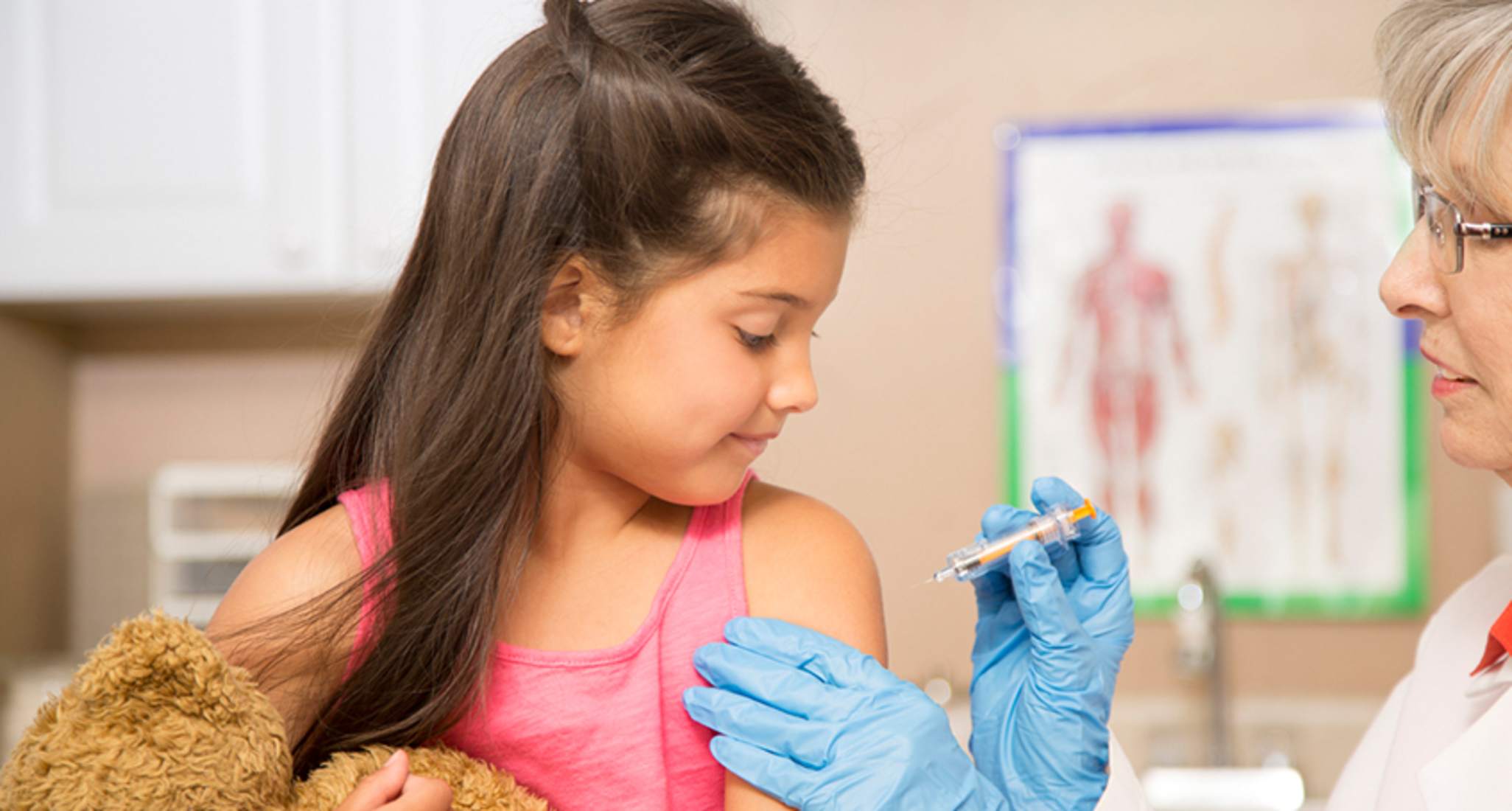Measles vaccine in Switzerland: what do I need to know about vaccination and costs?
Measles can affect all age groups and may result in serious complications. Two doses of the combined measles-mumps-rubella vaccine (MMR) will protect you for life. Read on for key info about the measles vaccine.

09.09.2022

iStock/fstop123
1. What do I need to know about measles?
This virus begins seemingly harmlessly: with a runny nose and cough, inflamed eyes and rising fever. The most prominent symptom is red spots that spread from the face to the entire body.
Measles weakens the body’s immune system. This can be particularly dangerous for patients with an existing immune deficiency. After five to ten days, the disease is usually over. However, there are also more severe courses that can lead to complications or, in rare cases, even death.
The measles virus is airborne (i.e. spread by coughing and sneezing). It can also be transmitted through direct contact with nasal secretions or saliva of infected people. Measles is one of the most contagious infections. Infected persons are contagious for four days before and after the appearance of the rash.
Measles is not exclusively a childhood disease. In principle, complications can occur in any person. However, the following are particularly at risk:
Patients with immunodeficiency
Pregnant people
Infants
Adults who have not been vaccinated or infected with measles in childhood
Serious complications are mainly brain inflammation (encephalitis), which occurs in 1 in 1000 cases, pneumonia, which affects 10 to 60 per 1000 cases, or otitis media (an infection of the middle ear). Occasionally, measles complications lead to death.
Uncomplicated cases usually heal fairly quickly and without lasting consequences. There is no specific therapy against the virus, however. Only the symptoms can be alleviated.
Contact a doctor if you or someone around you has a fever in combination with a cough, red spots or conjunctivitis. The vaccination status of the infected person will also inform the further measures taken by the specialist.
2. Is the measles vaccine necessary?
Vaccination is the only effective measure for the prevention of measles. Only extremely rarely do people fall ill despite having had the measles vaccine. Nevertheless, the disease should not be underestimated.
According the Swiss Federal Office of Public Health (FOPH), 95% of the population would have to be vaccinated from infancy onwards in order to eliminate measles in Switzerland. In many places in Switzerland, however, this vaccination rate is not achieved.
How is the vaccine given?
Many people do not respond to the first vaccination, meaning they do not develop the necessary antibodies against the measles virus until after the second dose. Therefore, a booster vaccine should be given at least one month later. If you have been vaccinated twice, you will remain immune for life, according to the current state of knowledge.
How effective is the measles vaccine?
The MMR vaccine is very effective: after two doses, more than 95% of those vaccinated are protected against measles and rubella, and about 90% against mumps. For the majority of fully vaccinated people, protection lasts a lifetime.
3. What vaccine is used for measles vaccination?
The measles vaccine in Switzerland is a combined vaccine against measles, mumps and rubella (MMR). It has been used since 1985 and is approved by the Federal Office of Public Health. The syringe contains live viruses that have been attenuated in the laboratory. The viruses can cause an immune response, but cannot cause the disease itself.
The MMR vaccine may contain traces of an antibiotic (neomycin) and various stabilizing substances (lactose, sorbitol, mannitol). The vaccine does not contain mercury (thimerosal) or aluminium.
Single measles vaccine: approved in Switzerland
Alternatively, there is a single vaccine that only protects against measles. The single vaccine has been approved in Switzerland to increase the vaccination rate. In neighbouring countries such as Germany and Austria, there is no single vaccine against measles available.
4. Who should get vaccinated?
The FOPH recommends that all people born from 1964 onwards get vaccinated if they
are unsure of their vaccination status, or
they have never been vaccinated or have only been vaccinated once.
Those born before 1964 are assumed to have already had the measles and are therefore immune to the disease.
In cooperation with the Federal Commission on Vaccination, the Federal Office of Public Health (FOPH) regularly reviews the Swiss vaccination schedule (in German). The vaccination recommendations in this schedule aim at optimal protection of the population and each individual by means of immunization. Vaccination is only recommended if the benefits exceed the risks associated with vaccinations many times over.
When is MMR vaccination recommended in babies?
According to the recommendation of the FOPH, the first dose of a vaccine against measles, mumps and rubella (MMR) should be given at the age of nine months, the second dose at twelve months. The current recommendation has been in place since 2019.
Who shouldn’t get vaccinated?
These groups should not get the measles vaccine:
Pregnant women
People with an immune deficiency
People undergoing cortisone therapy
People with an allergy to vaccine ingredients
Acutely ill people: if you are currently ill, you should postpone vaccination by one or two weeks.
Is it possible to get the measles vaccine shortly after contact with a measles patient?
If you have had contact with a measles patient, you can get vaccinated within three days. This allows you to obtain complete or at least partial protection, and minimizes the risk of a complicated disease course.
However, many patients do not know when they became infected and where. It is therefore advisable to have a prophylactic vaccination to prevent measles, rather than only seeking vaccination after coming into contact with the disease.
5. What are the possible side effects of the measles vaccine?
After vaccination, localized redness and/or swelling and pain at the injection site may occur. Sometimes fever, red patches of skin or swelling of the salivary gland can occur. Very rare are febrile convulsions; inflammation of the brain is extremely rare. Women who have already been through puberty occasionally complain of joint pain after being vaccinated.
There is currently no scientific evidence linking measles vaccination to autism. The Federal Office of Public Health (FOPH) emphasizes that the risk of complications from measles is much greater than the risk of serious side effects from vaccination.
6. Measles vaccination in Switzerland: costs
Vaccination against measles, mumps and rubella is considered important by the health authorities. Therefore, basic insurance covers the costs, although you still have to pay the coinsurance. However, this is just a few francs. You don’t have to pay any deductible for the measles vaccine in Switzerland.



